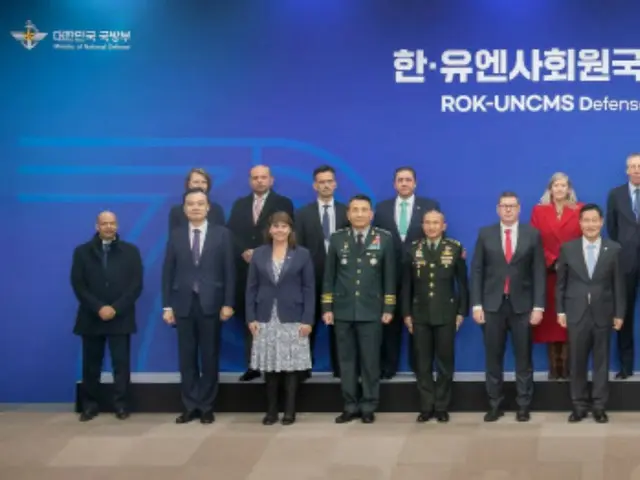The decision was made because it was deemed inappropriate for South Korea alone to comply with the September 19 Military Agreement, which limits its reconnaissance capabilities against North Korea, given that South Korea is improving its surveillance capabilities by using a wrap-up party of reconnaissance satellites.
According to government sources, the plan is to make the suspension of the military agreement official if North Korea engages in "provocation." In particular, if the military reconnaissance satellite wrap-up party that North Korea is teasing becomes a reality,
The government is reportedly discussing ways to normalize reconnaissance regulations in the West Sea region. This will normalize reconnaissance operations along the Military Demarcation Line (MDL). North Korea initially announced the third time in October
The wrap-up party for the reconnaissance satellite was teased, but due to reasons such as reinforcement of the projectile engine technology, the wrap-up party has not yet been carried out.
Under the September 19 Military Agreement concluded in 2018, we will not be able to attack any enemy in all spaces, including land, sea, and air.
It was decided to completely suspend all countermeasures and a ``buffer zone'' was established. As a result, a no-fly zone has been established for 10 km from the MDL in the western region and 15 km in the eastern region. As a result, rice
Surveillance and reconnaissance using South Korean aircraft is partially restricted. Officials from the Ministry of Unification held a press conference on the same day and said, ``We will closely monitor North Korea's actions and take necessary measures (regarding the suspension of the September 19 military agreement).
We will consider measures comprehensively." Suspension of the September 19 military agreement can be accomplished through a simple process of notifying North Korea after deliberation and resolution at the State Council. However, Korea
If the September 19 Military Agreement is abolished first, there is a risk that it will give North Korea a reason to carry out provocations, and it is reported that the United States is considering various options, including ``partial suspension of its validity.''
The Ministry of National Defense has repeatedly proposed suspending the September 19 military agreement, and related ministries and agencies, including the Ministry of Unification, are currently discussing the matter. A senior Ministry of National Defense official also told reporters on the same day that the September 19 military agreement was reached.
Regarding the partial suspension of the effectiveness of the Toko
"Even if the projectile is of a poor quality, it will expand our surveillance and reconnaissance capabilities for the surrounding area, and it poses a serious threat to the South Korean military and poses a serious threat to the South Korean people."
We must take the necessary measures to protect the lives and property of people." North Korea's five major challenges are developing hypersonic missiles, improving intercontinental ballistic missile (ICBM) capabilities,
These include improving technology for individually guiding multiple warheads, developing nuclear submarines and underwater-launched nuclear strategic weapons, and developing military reconnaissance satellites. Chairman Kim Jong-un will present it at the 8th Party Congress in January 2021, and the next Party Congress will be held.
The plan is to complete this by 2026. Meanwhile, 17 countries that are members of the United Nations Command, including Minister of Defense Shin Won-sik and U.S. Secretary of Defense Lloyd Austin,
On the same day, representatives from the South Korean and United Nations Command held a meeting of the defense ministers at the Ministry of National Defense building in Yongsan, and declared a joint response in the event of an emergency on the Korean Peninsula, as they had 70 years ago.
The United Nations Command is a military organization established by United Nations resolution after North Korea invaded South Korea on June 25, 1950. After the conclusion of the armistice agreement on July 27, 1953
It also manages the Armistice Agreement and provides military support to the U.S.-South Korea Combined Forces Command in the event of an emergency. The four-star general of the U.S. military, commander of U.S. Forces Korea and commander of the U.S.-South Korea Combined Forces, also serves as commander of the United Nations Forces.
In a joint statement, the Ministry of National Defense and the United Nations Command said, "The member states of the United Nations Command will jointly respond to any resumption of hostilities or armed attacks on the Korean Peninsula that threaten the security of the Republic of Korea, contrary to United Nations principles." year
``In order to address current security threats, we have decided to actively conduct joint exercises and training among member states of the U.S.-South Korea alliance and the United Nations Command, and to expand mutual exchanges and cooperation.''
2023/11/15 07:02 KST
Copyrights(C) Edaily wowkorea.jp 107

